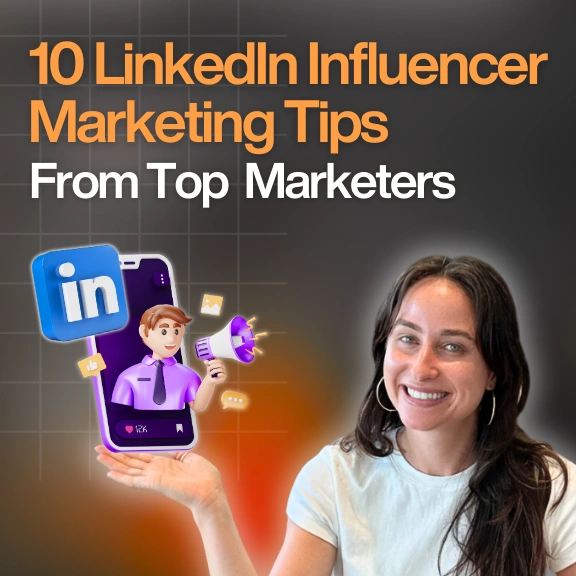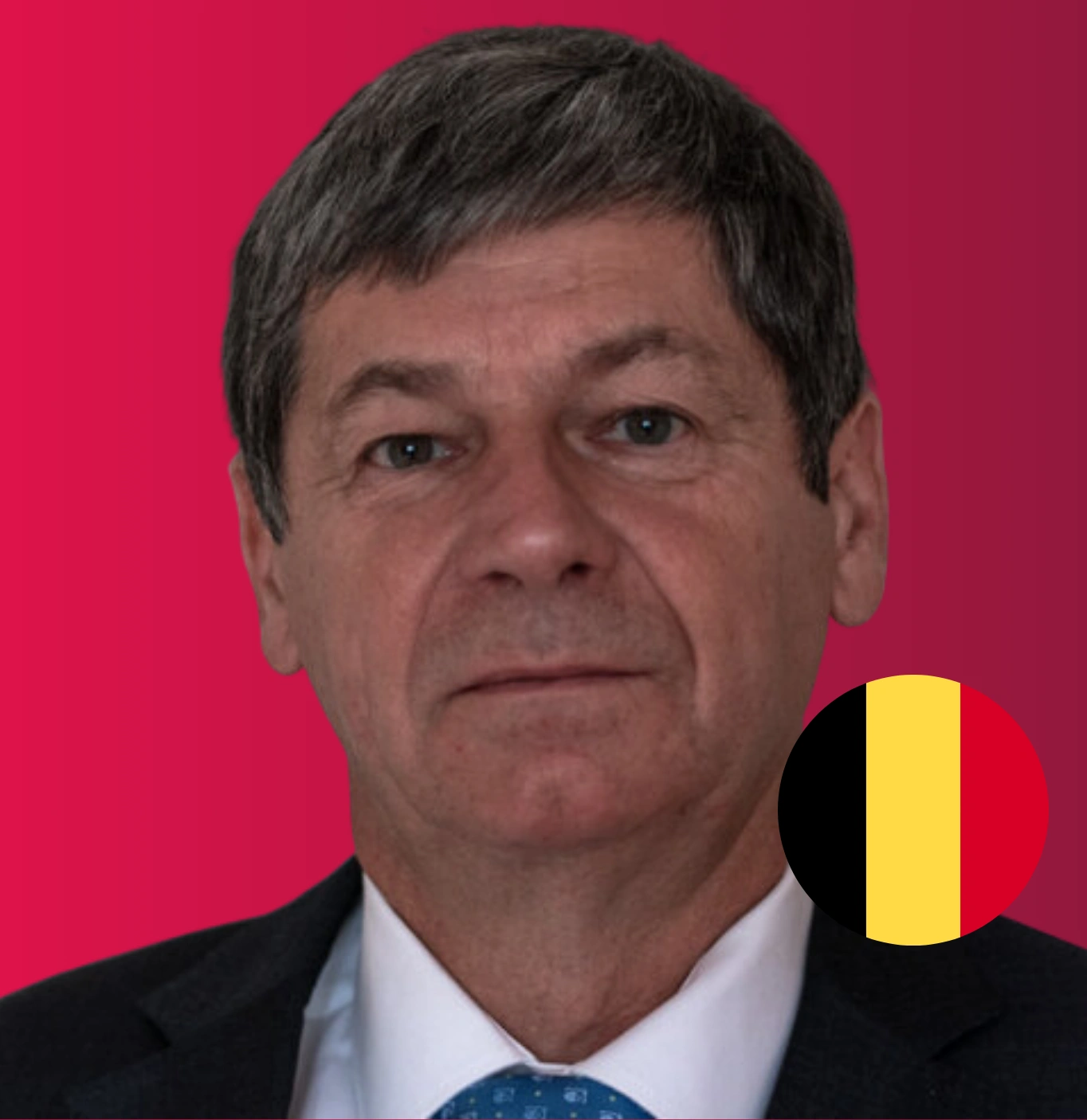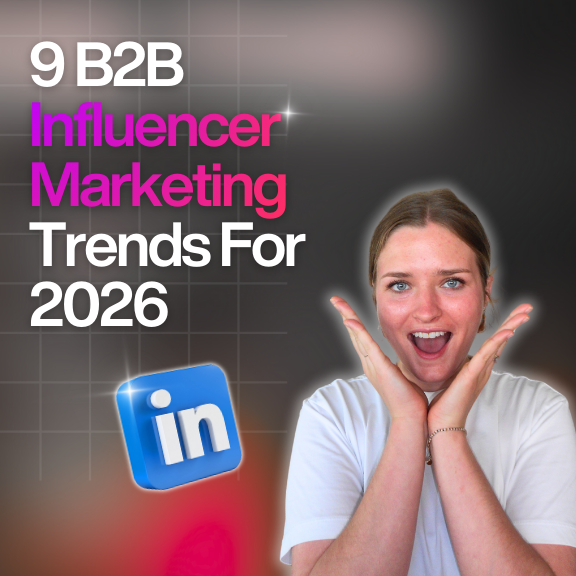Blog & Articles
Your ultimate ressource for the creator economy
Methodology & Rankings
About Favikon, rankings, tools & much more.
Insights
The recipe behind Favikon's viral & coveted rankings.
Free tools to power your influencer marketing workflows.
See Favikon users' success stories.
Get access to all Favikon rankings.
Become a Partner
Become an Affiliate
About the team behind Favikon
The place to talk creator economy, together


Featured Rankings

Here is the Top 50 Rising Video Creators on LinkedIn. Video is quickly becoming the platform’s most powerful format, with creators gaining more reach and engagement than ever. As Gen Z grows its presence and tools like BrandLink and Thought Leader Ads support content creation, LinkedIn is doubling down on video. This ranking, made in partnership with OpusClip, celebrates the creators leading this shift and aims to inspire anyone ready to start sharing through video.

Here is the Top 50 Rising Video Creators on LinkedIn. Video is quickly becoming the platform’s most powerful format, with creators gaining more reach and engagement than ever. As Gen Z grows its presence and tools like BrandLink and Thought Leader Ads support content creation, LinkedIn is doubling down on video. This ranking, made in partnership with OpusClip, celebrates the creators leading this shift and aims to inspire anyone ready to start sharing through video.
Controvery surrounding Marques Brownlee
In today’s digital age, the lines between content creators and entrepreneurs are blurring. As creators leverage their massive followings to build businesses, expectations from their audiences have skyrocketed.



Jérémy Boissinot is the founder of Favikon, an AI-powered platform that helps brands gain clarity on creator insights through rankings. With a mission to highlight quality creators, Jérémy has built a global community of satisfied creators and achieved impressive milestones, including over 10 million estimated impressions, 20,000+ new registrations, and 150,000 real-time rankings across more than 600 niches. He is an alumnus of ESCP Business School and has been associated with prestigious organizations such as the French Ministry and the United Nations in his professional pursuits.
Check Brand DealsIn today’s digital age, the lines between content creators and entrepreneurs are blurring. As creators leverage their massive followings to build businesses, expectations from their audiences have skyrocketed. A recent example is Marques Brownlee (MKBHD), one of the most respected voices in the tech world. Known for his high-quality reviews and dedication to detail, Brownlee ventured into the business world by launching his Panels app—a wallpaper app for mobile devices. Fans expected the same excellence that defines his tech content, but the backlash was swift and intense.
The Evolution of Creators into Entrepreneurs
The creator economy has evolved dramatically over the past few years. Initially, many creators relied on content monetization, sponsorships, or affiliate marketing to earn a living. However, as their influence grew, so did their business opportunities. We’ve seen a significant shift from content creation as a side hustle to creators establishing themselves as entrepreneurs in their own right.
Creators like Marques Brownlee, MrBeast, and Ruben Hassid are now launching full-fledged products and services, moving beyond traditional monetization methods like YouTube ads or online courses. Brownlee, for instance, didn’t just promote a product; he built one, banking on his audience’s trust and reputation. This trend speaks to the massive opportunities available in today’s creator economy, where social media influencers can leverage their platforms to launch businesses.
However, this comes with heightened scrutiny. The audience isn’t just following creators for entertainment anymore—they expect them to deliver real value. And as Brownlee’s Panels app controversy shows, one misstep can damage years of credibility.
The Panels App Backlash: A Case Study
When Marques Brownlee launched the Panels app in September 2023, his audience expected top-tier quality. The app, designed to offer curated wallpapers for mobile devices, was built on the same sleek design and high standards Brownlee is known for in his tech reviews. However, the app quickly faced backlash for two key reasons: pricing and privacy concerns.
Users criticized the premium subscription pricing, which costs $12 per month or $50 per year—pricing that seemed steep for something as simple as wallpapers, especially when free alternatives are widely available. In addition, there were complaints about excessive data collection, with users pointing out that the app requested permissions for GPS data and other unnecessary information. This led to accusations of it being a “cash grab” and caused fans to question Brownlee’s motivations.

For someone as respected as Brownlee, the backlash was a reminder that trust in the creator economy is fragile. When creators launch products, their entire brand reputation is on the line. Brownlee quickly responded to the criticism, promising to address privacy concerns and improve the user experience, but the initial damage was done. Even the most trusted creators aren’t immune to missteps, and the stakes are only getting higher.
The New Expectations for Creators-Turned-Entrepreneurs
Brownlee’s situation is not unique. We’re seeing more and more creators move from traditional content creation into business ventures, whether it’s launching apps, products, or even full-scale companies. MrBeast, for example, expanded beyond his wildly popular YouTube channel to launch Feastables, a snack brand, and MrBeast Burger, a virtual restaurant chain. Similarly, Ruben Hassid has launched Easygen, a tool leveraging AI, with all eyes on him as an expert in the AI space.

These creators aren’t just influencers anymore—they are entrepreneurs building brands and businesses. But as their businesses grow, so do the expectations of their audiences. No longer are followers willing to accept subpar products or services just because they come from a favorite creator. The audience demands excellence, transparency, and real value. If a product fails to meet those expectations, the backlash can be swift and unforgiving, as Brownlee learned with Panels.
This shift in expectations is driven, in part, by the accessibility of business tools like AI and digital platforms. It’s now easier than ever for creators to move beyond content and build full-scale products, but that accessibility also means they are expected to deliver something genuinely valuable. It’s no longer just about content creation—it’s about creating products that align with the credibility and expertise they’ve built over years.
As the creator economy continues to evolve, the lines between creator and entrepreneur will only become more blurred. Creators like Marques Brownlee, Ruben Hassid, and MrBeast have demonstrated that there are massive opportunities to build businesses on top of their influence. However, with those opportunities come significant risks.
The trust that creators build with their audiences is their most valuable asset. One misstep can shake that trust, as seen in Brownlee’s recent backlash. Moving forward, creators need to exercise caution, ensuring that every product or business they launch aligns with the high standards their followers expect.
In this new era of the creator economy, it’s clear that the stakes have never been higher. Creators aren’t just influencers—they are entrepreneurs, and with great power comes the responsibility to uphold trust and deliver real value.
Related Articles
See all the articlesResources











.png)










